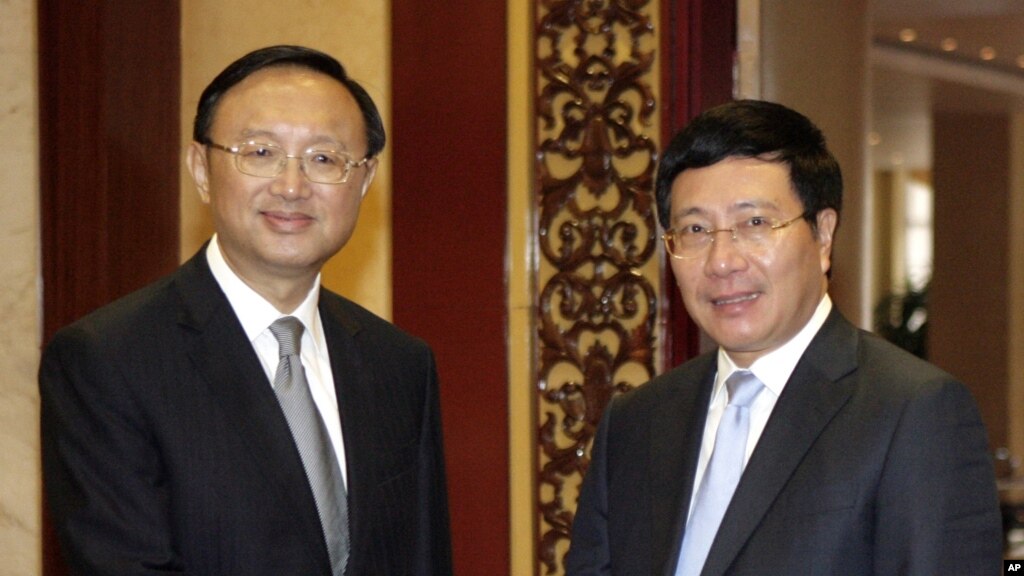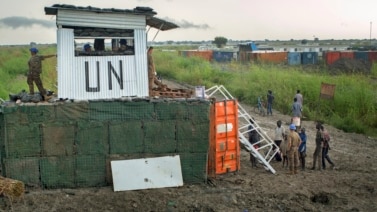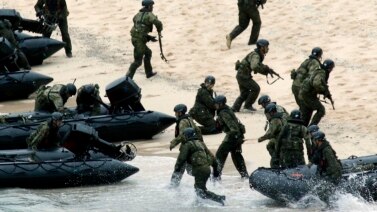
China and Vietnam have agreed to use an existing process for settling border disputes to find a solution to a territorial conflict in the South China Sea.
China’s top diplomat, State Councilor Yang Jiechi, met with Vietnamese Foreign Minister Pham Binh Minh in Hanoi recently. After the meeting, China’s foreign ministry said they had agreed to “appropriately handle the maritime problem.”
The two countries have sought to improve relations since the territorial dispute worsened last May. That was when China deployed oil drilling equipment to waters claimed by each side. The deployment led to clashes at sea between the countries and violent anti-Chinese protests in Vietnam.
The Chinese statement said nothing about the $1 billion oil platform. China moved the equipment out of the disputed waters on July 15. At that time, Chinese officials said its activities were complete.
Vietnam and China fought a brief border war in 1979. The fighting killed tens of thousands of soldiers on both sides. After the war ended, the two countries agreed to clearly mark their shared border, including the Tonkin Gulf.
But the agreement did not deal with claims over a small group of islands -- the Spratley and the Paracel -- in the South China Sea. In Vietnam, the waters are called the East Sea.
Also, Vietnam’s Defense Minister Phung Quang Thanh said he and China’s defense minister agreed to set up a direct hotline.
The Vietnamese official said the telephone link is meant to “control possible incidents at sea that might lead to conflicts.”
He made the announcement to Vietnamese state-operated media. Last weekend, the military official completed an unexpected visit to China. Observers say the trip could help ease tensions between the two sides.
Vietnam and China established their first telephone hotline last year. That line provides a direct way for coastal fishing officials of the two countries to communicate. At that time, each side agreed to inform the other of any detainment involving fishermen or boats within 48 hours.
I’m Ann Ball.
*This report was based on stories from VOANews.com. George Grow wrote it for Learning English. Hai Do was the editor.
Words in this Story
direct – adj. straight to something; not through some other person or thing
link – n. a relation between two or more things, situations or events; v.,to connect; to unite one thing or event with another
tensions – n. fears or concerns
telephone – n. a device or system for sending sounds, especially the voice, over distances
Now it’s your turn to use these Words in this Story. In the comments section, write a sentence using one of these words and we will provide feedback on your use of vocabulary and grammar.





